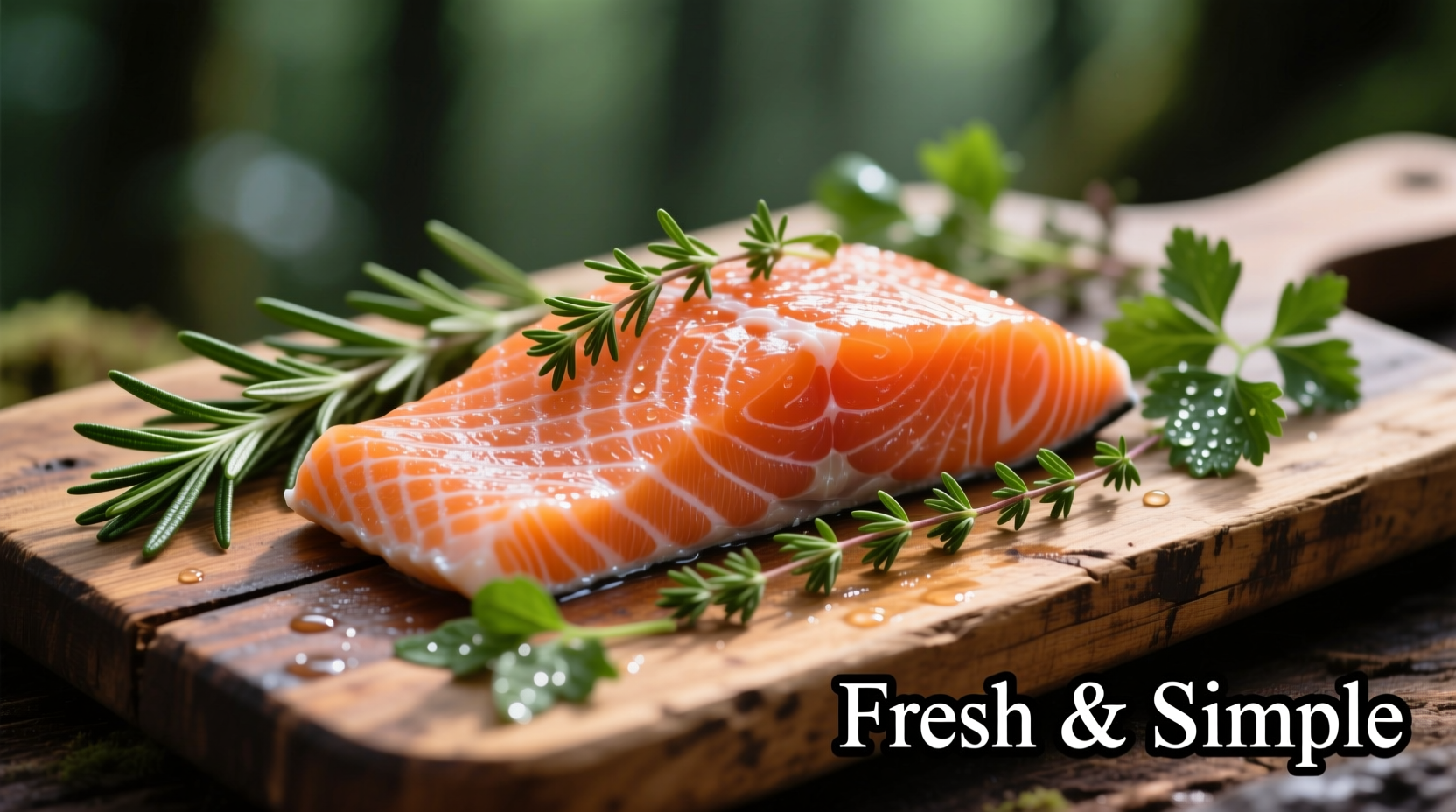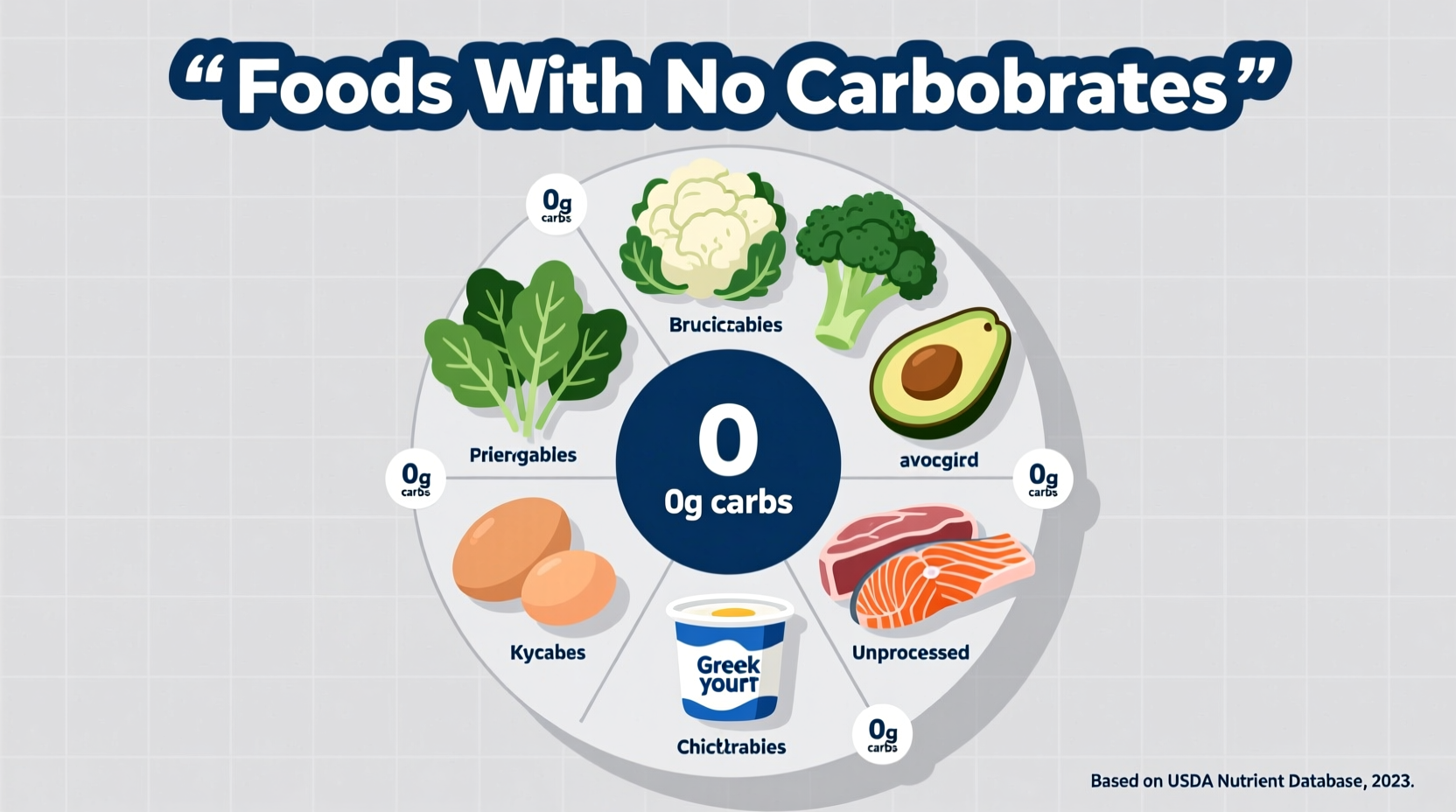Understanding Zero-Carb Nutrition: What You Need to Know
When searching for what foods have no carbohydrates, it's crucial to understand that truly carb-free options are surprisingly limited. While many diets promote "zero-carb" eating, nutritional science reveals that only specific animal-based products contain absolutely zero carbohydrates. This distinction matters for keto dieters, people managing diabetes, or those exploring carnivore diets.
The Science Behind Zero-Carb Foods
According to USDA FoodData Central, carbohydrates exist in three forms: sugars, starches, and fiber. For a food to contain zero carbs, it must have none of these. This eliminates nearly all plant-based foods, as even leafy greens contain trace carbohydrates. The National Institutes of Health confirms that animal products are the only naturally carb-free food category.

Complete List of Truly Zero-Carb Foods
These foods contain absolutely zero carbohydrates per standard serving (100g) according to USDA nutritional databases:
Animal Proteins
- Beef (all cuts, unprocessed)
- Chicken (skin-on or skinless)
- Fish (salmon, tuna, cod)
- Eggs (all types)
- Lamb and pork
Fats and Oils
- Olive oil
- Coconut oil
- Butter (unsalted)
- Ghee
- Animal fats (tallow, lard)
Seasonings and Condiments
- Salt (pure sodium chloride)
- Pepper (whole or ground)
- Vinegar (distilled white)
- Most herbs and spices in small quantities
| Commonly Mistaken "Zero-Carb" Foods | Actual Carb Content (per 100g) | Why They're Not Truly Zero-Carb |
|---|---|---|
| Cheese (most varieties) | 0.5-4g | Naturally occurring lactose |
| Almond milk | 0.5-1g | Natural sugars from almonds |
| Avocado | 2g net carbs | Contains fiber and natural sugars |
| Coconut cream | 3g | Natural sugars in coconut |
| Leafy greens | 1-3g | Photosynthesis creates natural sugars |
Practical Zero-Carb Meal Planning
Creating balanced meals with zero-carb foods requires attention to nutritional completeness. The Mayo Clinic notes that while zero-carb diets can be nutritionally adequate, they require careful planning to avoid deficiencies in certain vitamins and minerals typically found in plant foods.
Building Balanced Zero-Carb Meals
Focus on combining different protein sources with healthy fats. For example:
- Grass-fed beef with tallow-roasted vegetables (note: vegetables add carbs)
- Fish prepared with olive oil and herbs
- Eggs cooked in butter with animal-based fats
Important Considerations
Before adopting a zero-carb eating pattern, consider these evidence-based points from nutritional research:
- Nutritional completeness: Long-term zero-carb diets may require supplementation of vitamin C and certain phytonutrients
- Digestive adaptation: Many people experience temporary digestive changes when eliminating all plant foods
- Individual variation: What works for one person may not suit another's metabolic needs
- Medical conditions: Those with kidney issues should consult healthcare providers before high-protein diets
Zero-Carb Eating: Who Might Benefit?
Certain populations may find zero-carb approaches helpful under medical supervision:
- People with severe carbohydrate intolerance
- Those managing type 2 diabetes seeking rapid blood sugar control
- Individuals with specific digestive disorders
- People following therapeutic ketogenic protocols for neurological conditions
However, the CDC dietary guidelines emphasize that most people benefit from including a variety of plant-based foods in their diet for optimal health. Complete carbohydrate elimination isn't necessary or recommended for general population health.
Common Questions About Zero-Carb Foods
Here are answers to frequently asked questions about foods with no carbohydrates:











 浙公网安备
33010002000092号
浙公网安备
33010002000092号 浙B2-20120091-4
浙B2-20120091-4